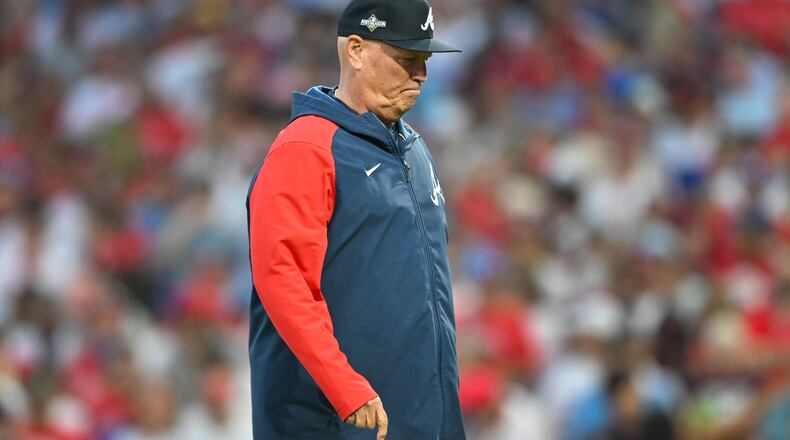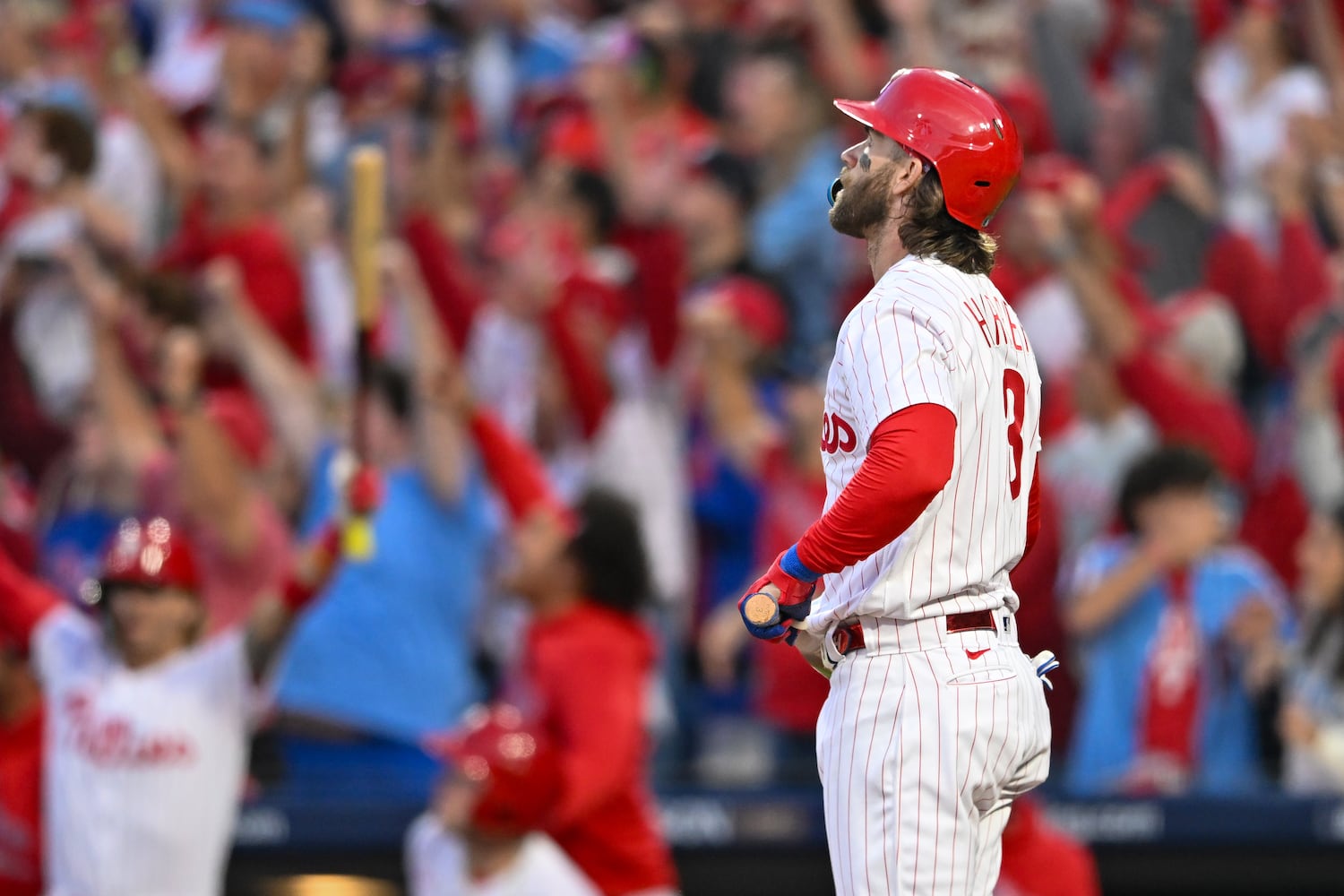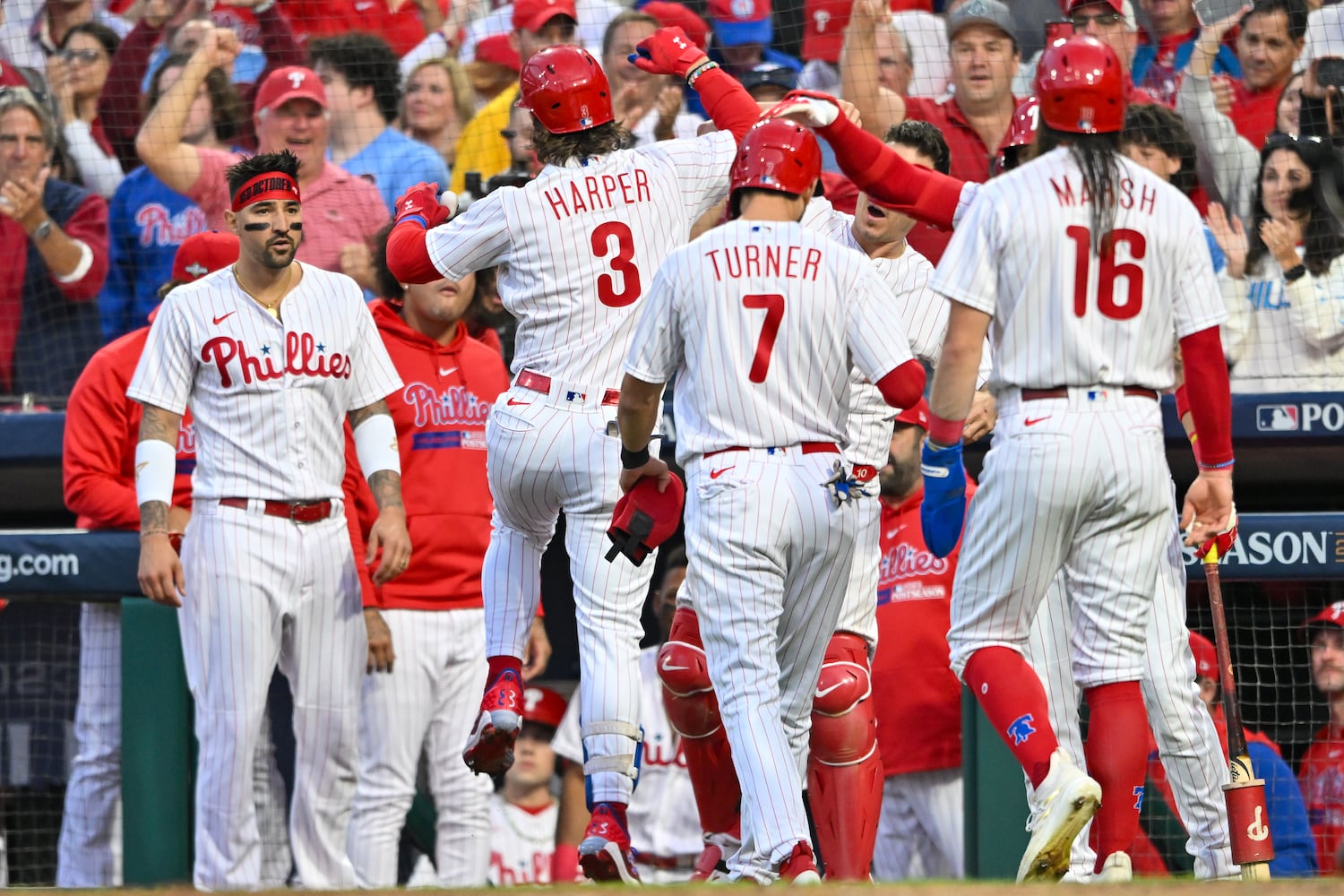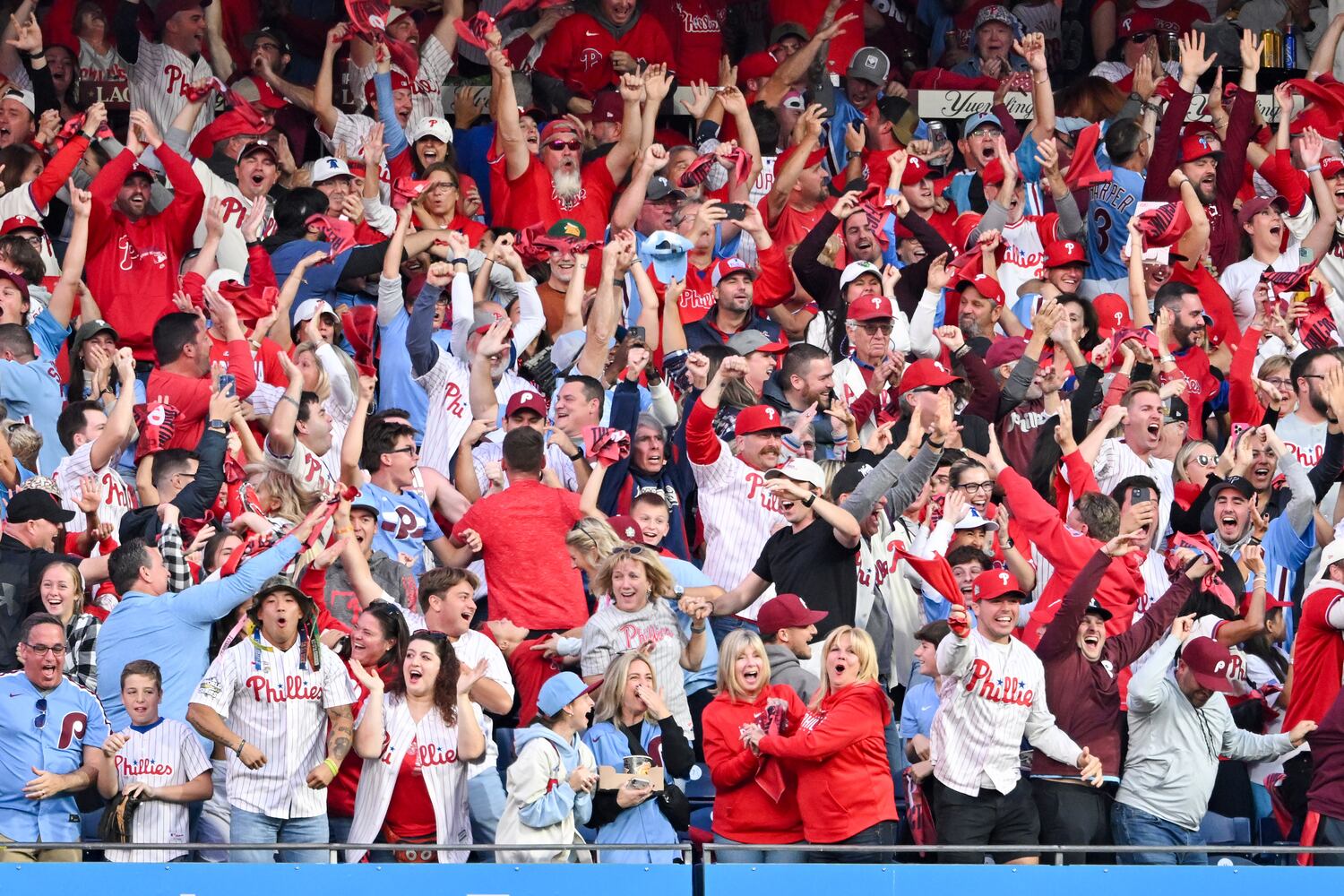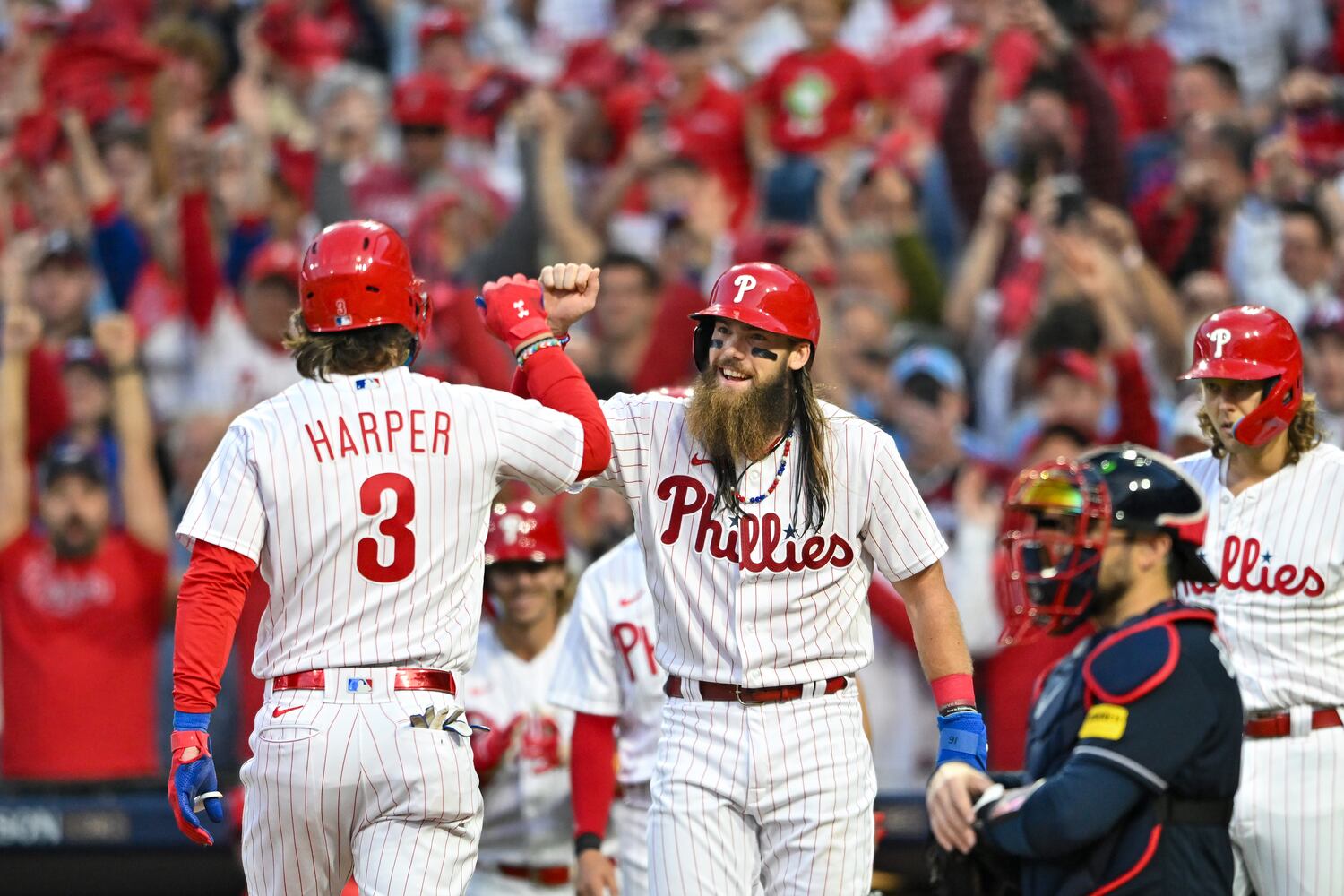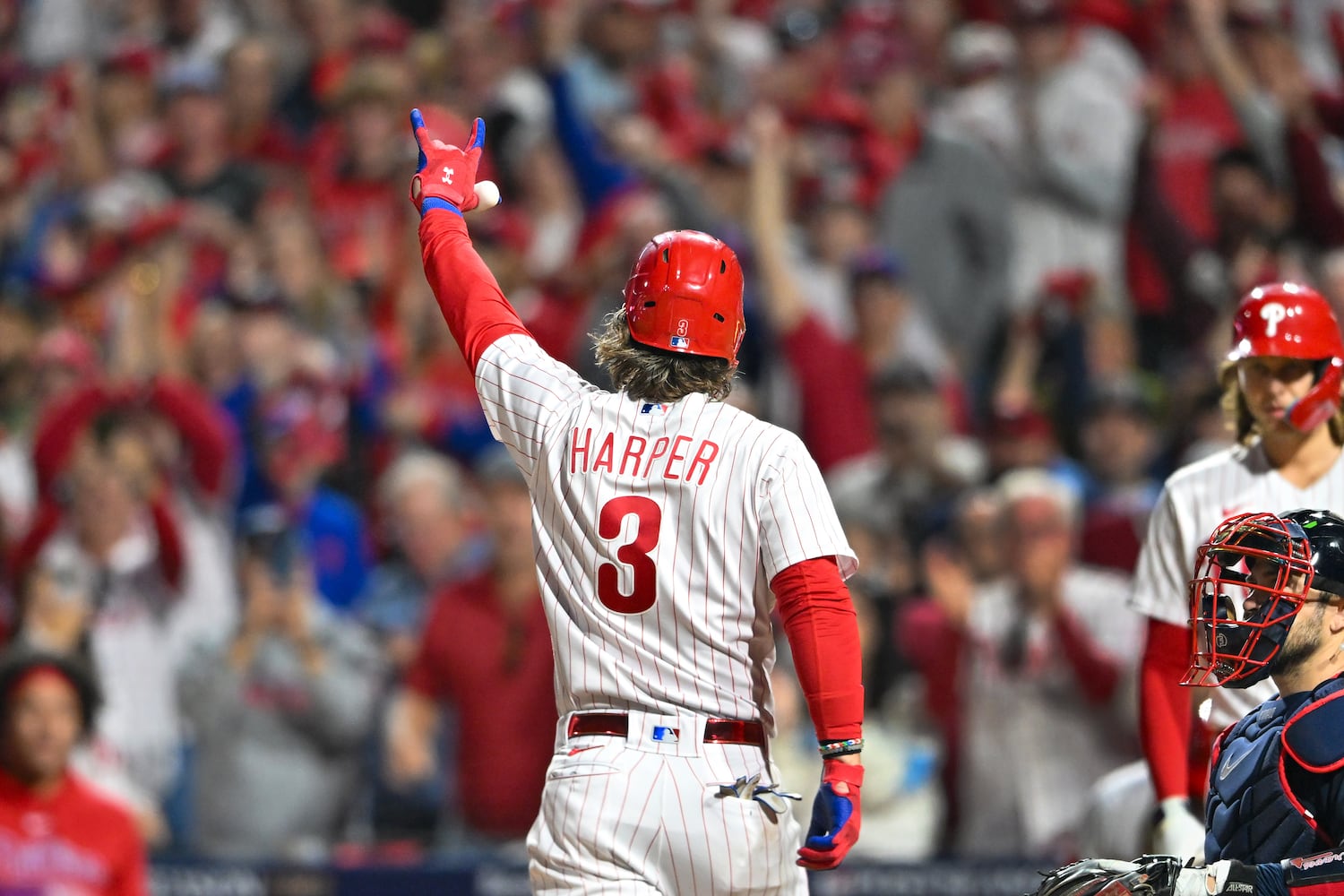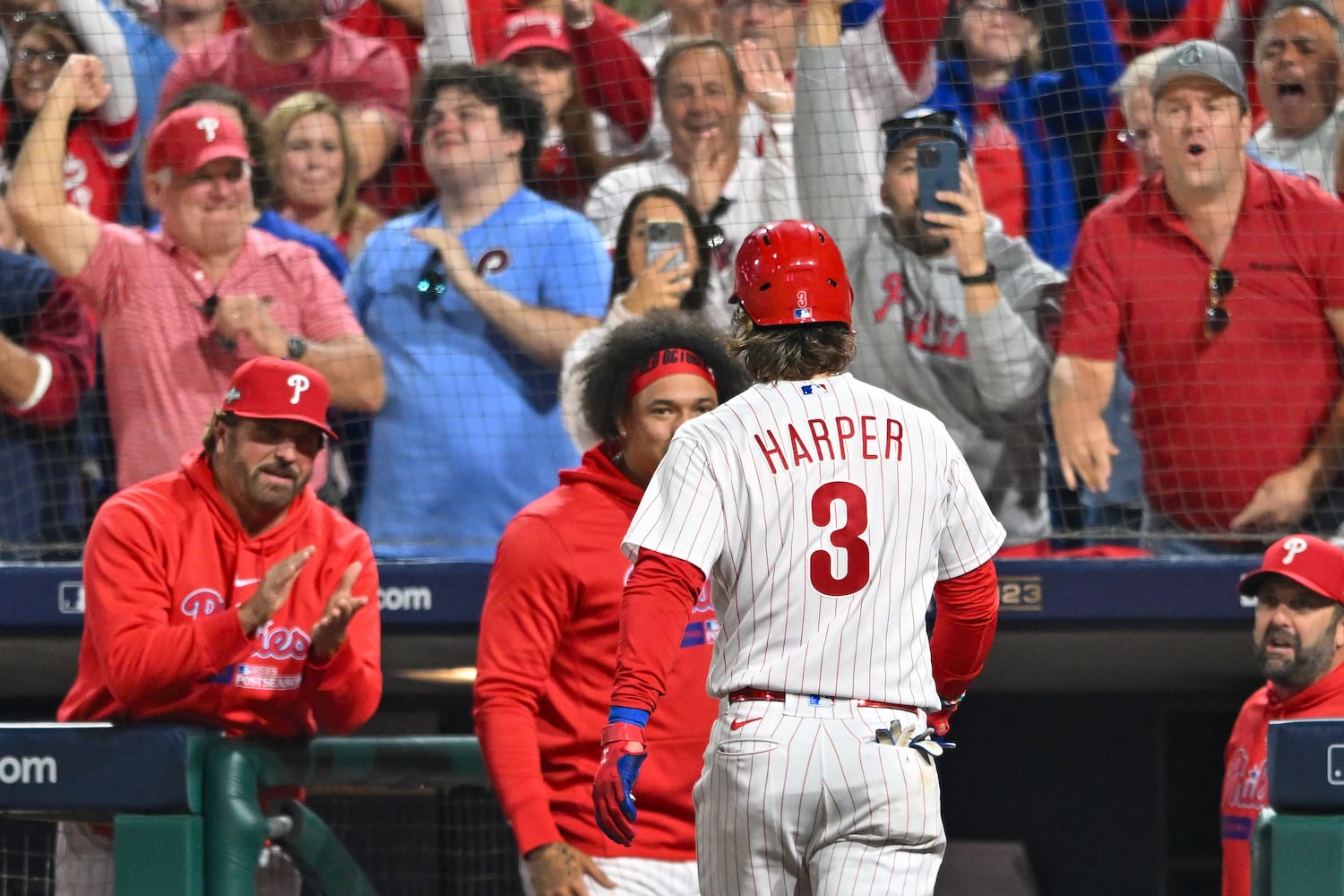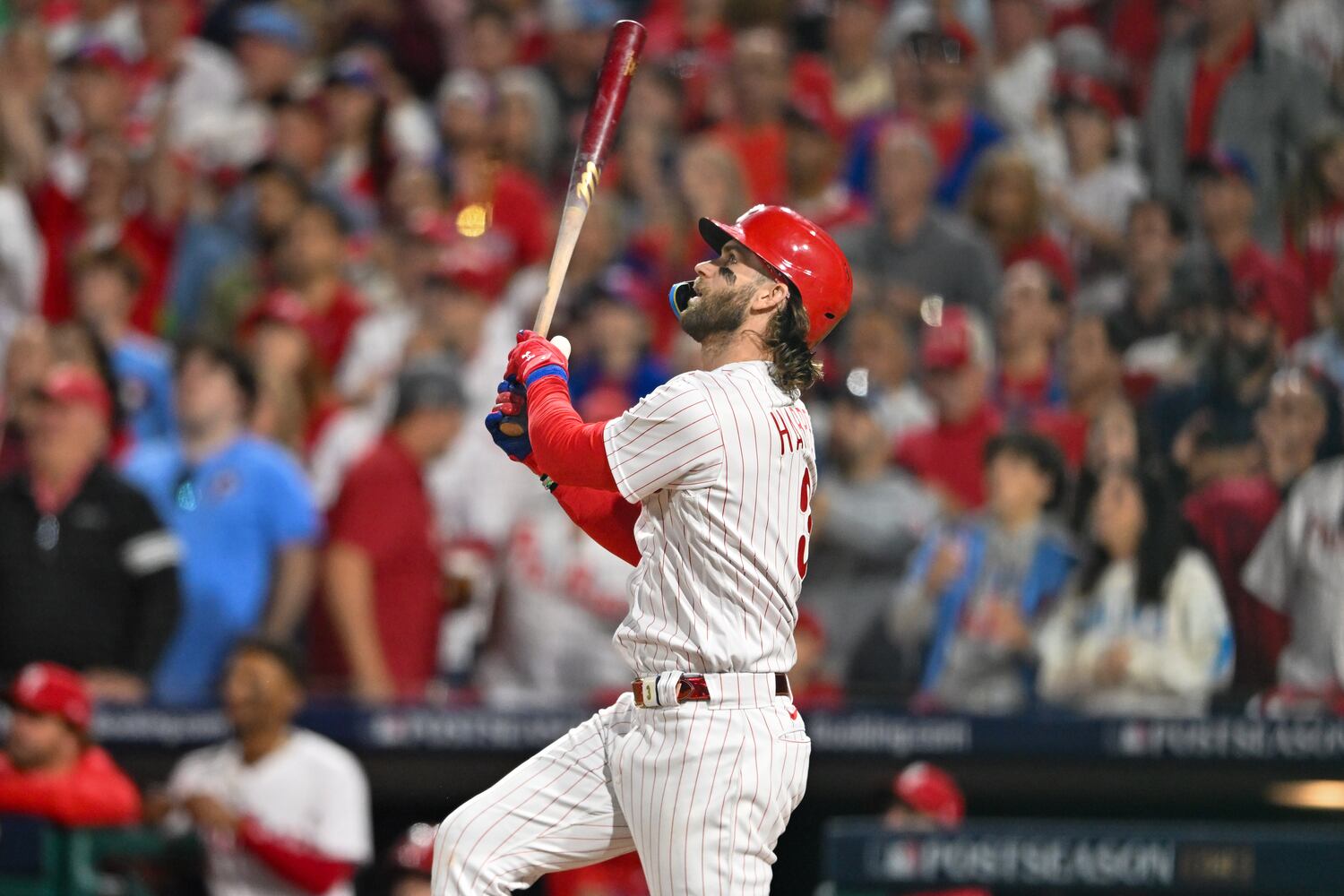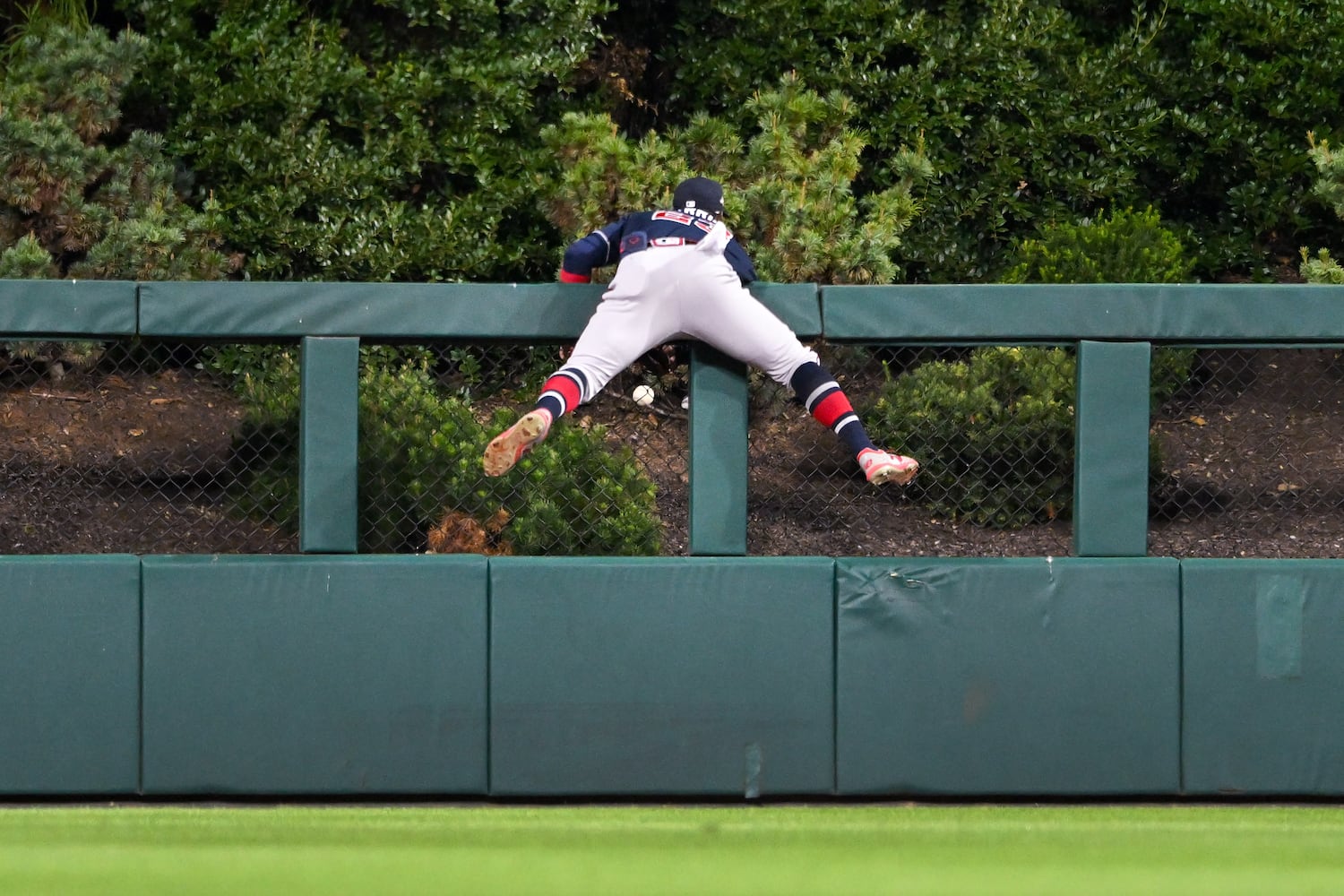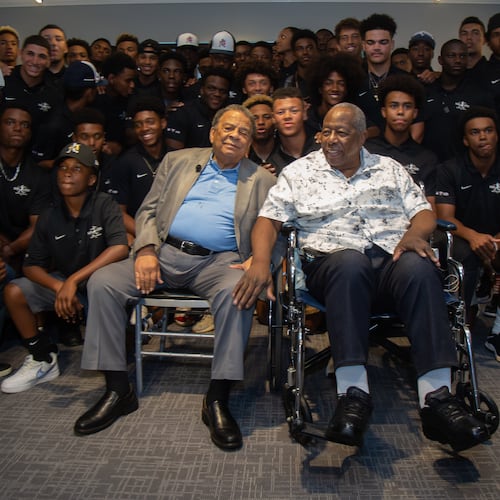PHILADELPHIA – With the game and possibly the season hinging on one at-bat, Brian Snitker placed his faith in Bryce Elder.
His players surely understood. The confidence that the Braves manager demonstrates in his players is one reason why they love playing for him.
But bat in hand, Bryce Harper made the Braves and Snitker pay for his trust with a 408-foot rocket shot for a three-run homer that turned out to be all the offense the Phillies needed in Game 3 of the National League Division Series Wednesday night.
Given the final 10-2 score, maybe the Braves weren’t going to win even if Harper had swung a loaf of bread in that fateful at-bat. Of all the potential pitching matchups of the possible five games, this was easily the one most likely to go the Phillies’ way. With that advantage on top of being back in Citizens Bank Park, perhaps Harper and his cronies would have piled it on high and thick no matter what had happened when Elder squared off with Harper.
But it sure feels like Snitker’s decision to stick with Elder against Harper not only triggered the avalanche but, more to the point, was ill-advised, a moment where pragmatism and urgency should have directed Snitker’s thinking.
“I was just hoping maybe that we’d make a pitch on him and he’d pop a ball up,” Snitker said. “Or if we walked him unintentionally, that would have been fine. And he hit a homer. He could have popped it up. He could have rolled it over to somebody, and he didn’t. That’s just kind of, you know, what it is.”
It’s Snitker’s team. It’s his decision. But counting on “just hoping maybe” that your wobbling starter can retire one of the game’s most dangerous postseason hitters with a historic season on the line is something less than a brilliant tactical maneuver.
After the game, Snitker explained that Elder was performing so well through the first two innings that he thought he could possibly go five innings. To be sure, Elder was cruising through the first two innings, keeping the Phillies off balance with his mix of sliders and sinkers. He had retired the Phillies in order both innings and had struck out four, including the dangerous Harper. He looked like the pitcher who had earned his first All-Star appearance in July and not like the one who had declined sharply in the second half and got rocked in his last two regular-season starts, once by the Phillies.
“I got back to kind of the way I was before the end of the year,” Elder said.
But Nick Castellanos led off the bottom of the third inning by smoking a slider into the left-field seats to tie the game at 1. Then Brandon Marsh hit a sharp single to right.
At that point, relievers got up in the Braves bullpen, but were only getting loose and not actually throwing. Elder rallied, retiring Johan Rojas on a foul popup and Kyle Schwarber on a groundout to second. But then Trea Turner hit a sharp grounder for an infield single, bringing Harper to the plate with two on and two out.
By Snitker’s own acknowledgement after the game, Harper is a special player who thrives in the limelight. Going into the game, he had averaged one home run for every 12.6 postseason at-bats, a Ruthian rate. He had already taken Braves ace Spencer Strider deep in Game 1.
Also, before the game, Snitker had shared his warning signal for when he would ask for the ball from Elder.
“Quite honestly, you’ve got to get outs,” he said. “Postseason, you’ve got to get outs.”
For all Elder’s excellence in the first two innings, he had faced five batters in the third inning when Harper strode to the plate. He had failed to retire three of them and it wasn’t as though any of the three had gotten on base with a well-placed bouncer. They were all sharply hit, one out of the park. Elder’s catcher could tell he was not the same.
“I think the first couple innings, he had his command and then the last inning, his third inning, he just lost his command a little bit,” Travis d’Arnaud said. “They’re such a great offense, they were ready to go and didn’t miss any of the mistakes that were made.”
With the most dangerous hitter in the lineup at the plate and his own pitcher not doing what he said would prompt his removal, it would have seemed a good time for Snitker to give Elder a pat on the back and ask for the ball. However, Snitker stuck with him.
In fact, there wasn’t even a reliever ready at that point. Beyond his confidence in what he had seen in Elder’s first two innings, Snitker said he was also concerned about burning a lefty reliever that early in the game when one might be needed later on to face Harper.
Snitker said he considered intentionally walking Harper, but just hoped maybe that Elder would retire Harper, who hoped Elder’s hanging slider all the way into the second deck.
It was now 4-1 and Citizens Bank Park was beyond loud. The damage had been done.
Coming back from three runs down was going to be a tall order, even for the Braves. This moment would also have been an advisable time to pull the plug. But Snitker continued to put his trust in Elder, who gave up a sharp single and a walk before Snitker had finally seen enough.
And when reliever Michael Tonkin gave up a double to J.T. Realmuto to drive in two, the error to leave Elder in was compounded. The lead grew to 6-1 and the game was effectively over. The Braves had pulled off an all-time comeback in Game 2 by rallying from a 4-0 deficit to win 5-4; pulling off an even bigger comeback one game later in front of this crowd wasn’t going to happen.
“You can second guess everything we do,” Snitker said. “If it doesn’t work, it’s not the right move.”
Every game is different, but it’s remarkable how similarly the game played out compared to last year’s NLDS Game 3 in the same park. With the series tied at 1, Strider – making his first start in almost a month – had shut out the Phillies for two innings before he began losing velocity in the third.
With Snitker sticking with him, Strider gave up a three-run homer to Rhys Hoskins (Braves fans may remember him spiking his bat in the dirt in celebration) before Harper (you surely remember him) added a two-run homer for a six-run inning, same as Wednesday night. The Phillies won that one 9-1 before wrapping it up in Game 4.
“In hindsight, he was so good the first two (innings) that, I don’t know, maybe we got kind of – I don’t know,” Snitker said that night.
“I don’t know” captures it pretty well.
All that said, there’s no reason that the Braves can’t win Games 4 and 5 with Strider and Max Fried going for them.
Game 3 doesn’t have to impact Game 4 any more than Game 1 didn’t influence Game 2. But it certainly has made the task of advancing to the league championship series monumentally more difficult.
And let it be said Snitker is a superb manager. Teams don’t win six consecutive division titles and a World Series without one.
But that doesn’t mean that Snitker couldn’t have done a better job Wednesday night. With an all-time season one game from being over, his team and the fan base that supports it are counting on him for more.
About the Author
The Latest
Featured
